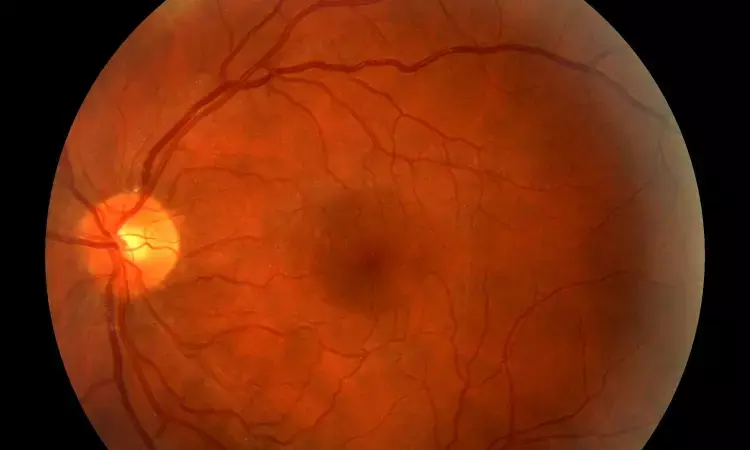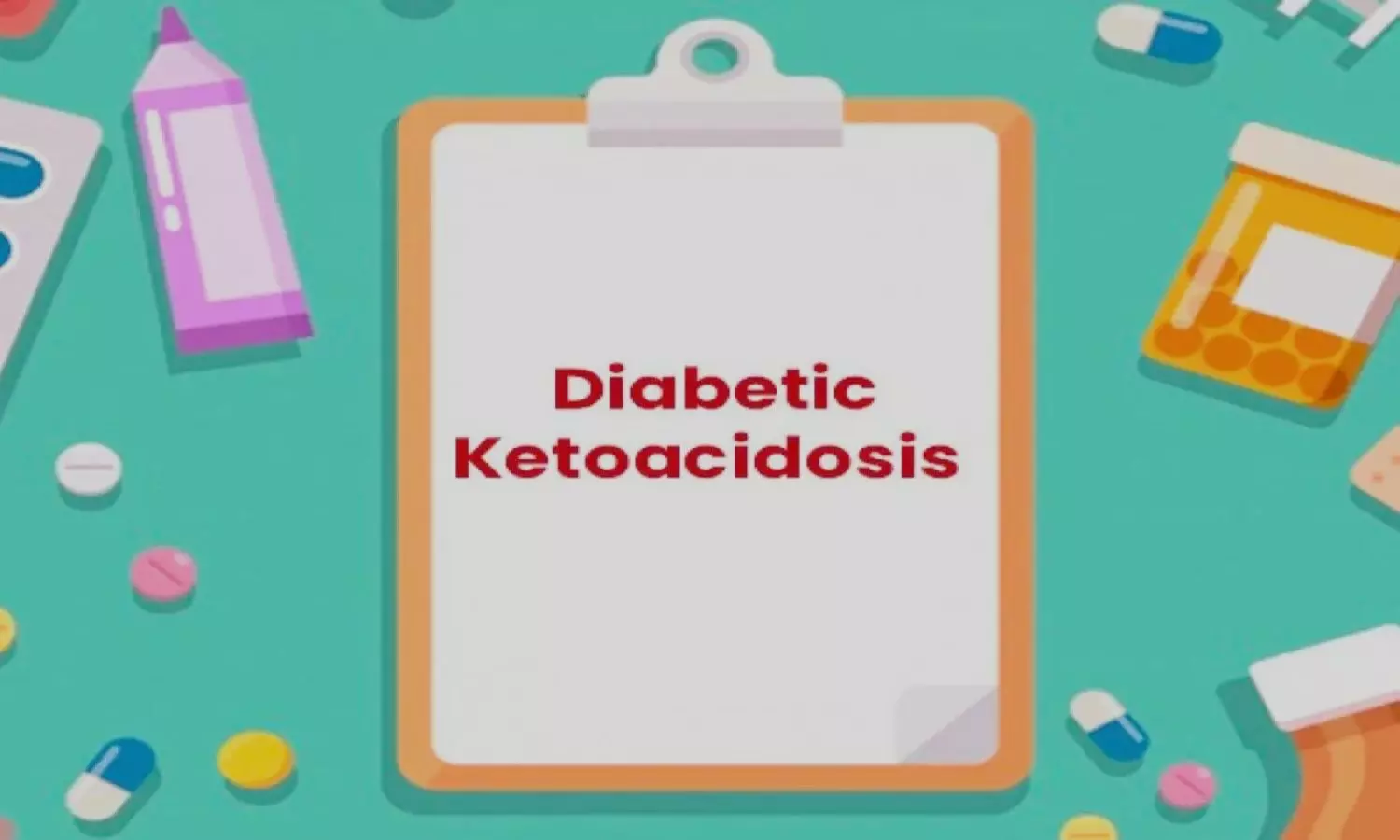- Home
- Medical news & Guidelines
- Anesthesiology
- Cardiology and CTVS
- Critical Care
- Dentistry
- Dermatology
- Diabetes and Endocrinology
- ENT
- Gastroenterology
- Medicine
- Nephrology
- Neurology
- Obstretics-Gynaecology
- Oncology
- Ophthalmology
- Orthopaedics
- Pediatrics-Neonatology
- Psychiatry
- Pulmonology
- Radiology
- Surgery
- Urology
- Laboratory Medicine
- Diet
- Nursing
- Paramedical
- Physiotherapy
- Health news
- Fact Check
- Bone Health Fact Check
- Brain Health Fact Check
- Cancer Related Fact Check
- Child Care Fact Check
- Dental and oral health fact check
- Diabetes and metabolic health fact check
- Diet and Nutrition Fact Check
- Eye and ENT Care Fact Check
- Fitness fact check
- Gut health fact check
- Heart health fact check
- Kidney health fact check
- Medical education fact check
- Men's health fact check
- Respiratory fact check
- Skin and hair care fact check
- Vaccine and Immunization fact check
- Women's health fact check
- AYUSH
- State News
- Andaman and Nicobar Islands
- Andhra Pradesh
- Arunachal Pradesh
- Assam
- Bihar
- Chandigarh
- Chattisgarh
- Dadra and Nagar Haveli
- Daman and Diu
- Delhi
- Goa
- Gujarat
- Haryana
- Himachal Pradesh
- Jammu & Kashmir
- Jharkhand
- Karnataka
- Kerala
- Ladakh
- Lakshadweep
- Madhya Pradesh
- Maharashtra
- Manipur
- Meghalaya
- Mizoram
- Nagaland
- Odisha
- Puducherry
- Punjab
- Rajasthan
- Sikkim
- Tamil Nadu
- Telangana
- Tripura
- Uttar Pradesh
- Uttrakhand
- West Bengal
- Medical Education
- Industry
Empagliflozin has potential of lowering progression of Diabetic Retinopathy among diabetes patients: Study

A recent study published in the journal JAMA Ophthalmology found that empagliflozin was associated with a reduced risk of the progression of diabetic retinopathy compared to dipeptidyl peptidase 4 inhibitor (DPP4i).
Diabetic Retinopathy (DR) is a prevalent complication in diabetics. It is the leading cause of irreversible vision loss among type 2 diabetics. Empagliflozin has significant protective effects against adverse cardiorenal outcomes in previous trials. They inhibit the retinal sodium-glucose cotransporter 2 protein and prevent retinal pericyte loss, thus decreasing the progression of DR. As there is limited data on the association between the role of empagliflozin and DR, researchers conducted a study to evaluate the association between empagliflozin use and the risk of incident nonproliferative DR (NPDR) and DR progression within the Empagliflozin Comparative Effectiveness and Safety (EMPRISE) study.
A new-user active-comparator cohort study was carried out based on US nationwide insurance claims data from 2 commercial insurers and Medicare from August 2014 to September 2019. Individuals using empagliflozin between August 2014 and September 2019 were included in the study, with DPP4i as the comparator. Adults with T2D initiating study drugs without prior diagnosis or treatment for proliferative DR or other advanced retinal diseases were included. To assess incident NPDR, patients with a history of NPDR were additionally excluded, while for the DR progression outcome, patients were required to have a history of NPDR. The occurrence of nonproliferative DR (NPDR) and the progression of DR were considered the primary outcomes of measurement. Incident NPDR was defined using diagnostic codes for mild, moderate, or severe NPDR. The DR progression outcome was described as a composite of incident proliferative DR, vitreous hemorrhage, intravitreal anti-vascular endothelial growth factor injection initiation, or pan-retinal photocoagulation.
Findings:
- About 34 239 propensity-score-matched adults were identified in the incident NPDR cohort and 7831 pairs in the DR progression cohort.
- In the incident NPDR cohort, 35 867 patients (52.4%) were male, and the mean (SD) age was 65.6 (10.3) years.
- In the DR progression cohort, 8229 patients (52.5%) were male, and the mean (SD) age was 67.0 (10.0) years.
- There was no difference in the risk of incident NPDR between the two groups over a mean (SD) follow-up period of 8 (7.5) months of receiving treatment.
- However, the empagliflozin group showed a lower risk of DR progression compared with those who began DPP4i therapy.
- Multiple subgroups and sensitivity analyses also showed consistent results.
Thus, the study concluded that empagliflozin is beneficial as it showed a reduced risk of DR progression compared to DPP4i initiation. Even though empagliflozin and DPP4i were similar in reducing the risk of incident NPDR, empagliflozin’s potential to lower the progression of diabetic retinopathy may influence the choice of the drug for glucose-lowering treatments in diabetic individuals.
Further reading: Tesfaye H, Paik JM, Roh M, et al. Empagliflozin and the Risk of Retinopathy in Patients With Type 2 Diabetes. JAMA Ophthalmol. Published online December 05, 2024. doi:10.1001/jamaophthalmol.2024.5219.
BDS, MDS
Dr.Niharika Harsha B (BDS,MDS) completed her BDS from Govt Dental College, Hyderabad and MDS from Dr.NTR University of health sciences(Now Kaloji Rao University). She has 4 years of private dental practice and worked for 2 years as Consultant Oral Radiologist at a Dental Imaging Centre in Hyderabad. She worked as Research Assistant and scientific writer in the development of Oral Anti cancer screening device with her seniors. She has a deep intriguing wish in writing highly engaging, captivating and informative medical content for a wider audience. She can be contacted at editorial@medicaldialogues.in.
Dr Kamal Kant Kohli-MBBS, DTCD- a chest specialist with more than 30 years of practice and a flair for writing clinical articles, Dr Kamal Kant Kohli joined Medical Dialogues as a Chief Editor of Medical News. Besides writing articles, as an editor, he proofreads and verifies all the medical content published on Medical Dialogues including those coming from journals, studies,medical conferences,guidelines etc. Email: drkohli@medicaldialogues.in. Contact no. 011-43720751




